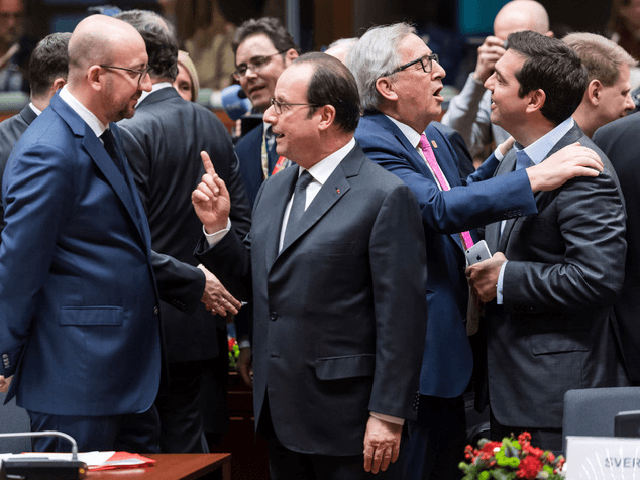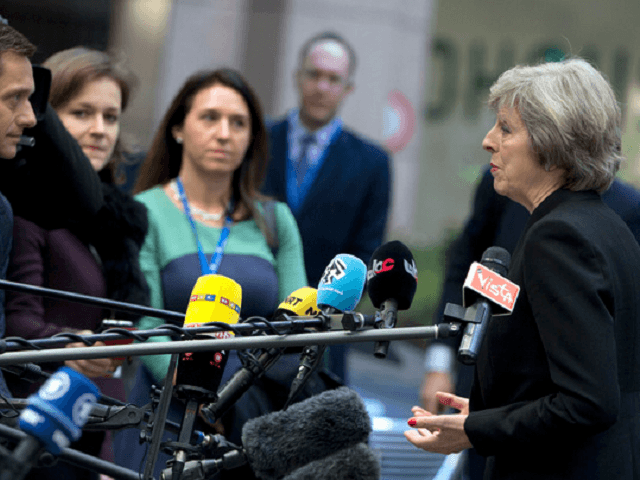BRUSSELS (AP) — The leaders of 27 European Union countries on Thursday rebuffed a bid by the EU legislature for a much bigger role in talks on Britain’s exit from the bloc, an argument that detracted from efforts to show a united stand in the negotiations.
Even though the EU Parliament will have to approve any Brexit scenario at the end of the talks, the EU nations plan to give the negotiator chosen by the bloc’s executive Commission, Michel Barnier, the chief position at the negotiating table. That will leave the legislature, which has often been critical of Britain, in a minor role.
The parliament has increased its decision-making powers over the last decade and has often clashed with Brexit-backing politicians like former U.K. Independence Party leader Nigel Farage. Because of its diverse political makeup, the EU Parliament could become an unpredictable player in the approval process.
EU Parliament President Martin Schulz told the EU leaders that “to relegate the European Parliament to a secondary role” would put the outcome of Brexit talks in danger.
“If we are not adequately involved, we may not be able to give our consent. And in this situation, the UK would face the hardest Brexit possible,” he said.
EU President Donald Tusk countered that “from the very beginning it was absolutely clear for me that the Commission must be the leader.”
In rebuffing the parliament’s ambitions, he said, “It is never enough, and I can understand why.”
If parliament rejects and subsequently vetoes a deal, Britain could just drop out of the EU and its enormous single market without any political safety net — described as a “hard” exit that many experts say could damage the British economy.
At a brief meeting after British Prime Minister Theresa May’s departure from Thursday’s EU summit, the leaders of the other 27 countries approved a statement saying that Barnier “will be invited to keep the European Parliament closely and regularly informed throughout the negotiation,” but offering little more direct involvement.
German Chancellor Angela Merkel played down the procedural wrangling, sayin the question of how the EU’s institutions work together is not “particularly pressing” given that Britain has yet to formally trigger exit talks.
Barnier has said the divorce negotiations with Britain would have to be finished in as little as 18 months after they are triggered, which is expected by the end of March, but others say the whole process could take much longer.
Britain’s former top civil servant, Gus O’Donnell, said he thought sealing a final deal would take “years and years.”
“I can imagine it taking at least five years to get through all of the details,” he told the BBC. “And I imagine some of the transitional arrangements may be longer than that.”
When asked about it as she entered the EU summit, May did not address the concern. But the British leader did say she wasn’t angry about the other EU leaders meeting without her.
“It’s right that the other leaders prepare for those (Brexit) negotiations, as we have been,” she told reporters. “We will be leaving the EU, we want that to be a smooth and as orderly a process as possible. It’s not just in our interests. It’s in the interest of the rest of Europe.”
May didn’t mention the Brexit talks as she left the summit. Irish Prime Minister Enda Kenny said she had told the other leaders that she wanted the status of EU citizens living in Britain and Britons living elsewhere in the EU “dealt with in the early part of discussions.”


COMMENTS
Please let us know if you're having issues with commenting.